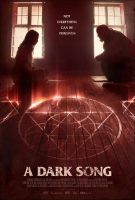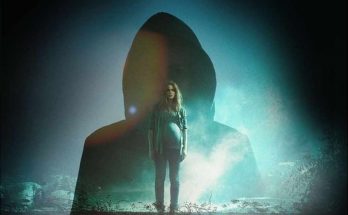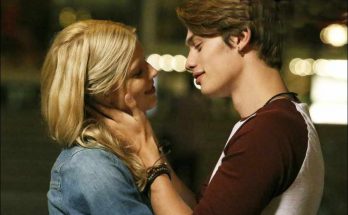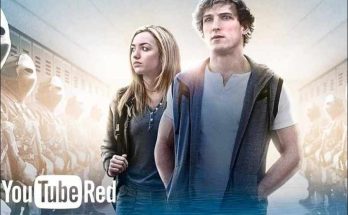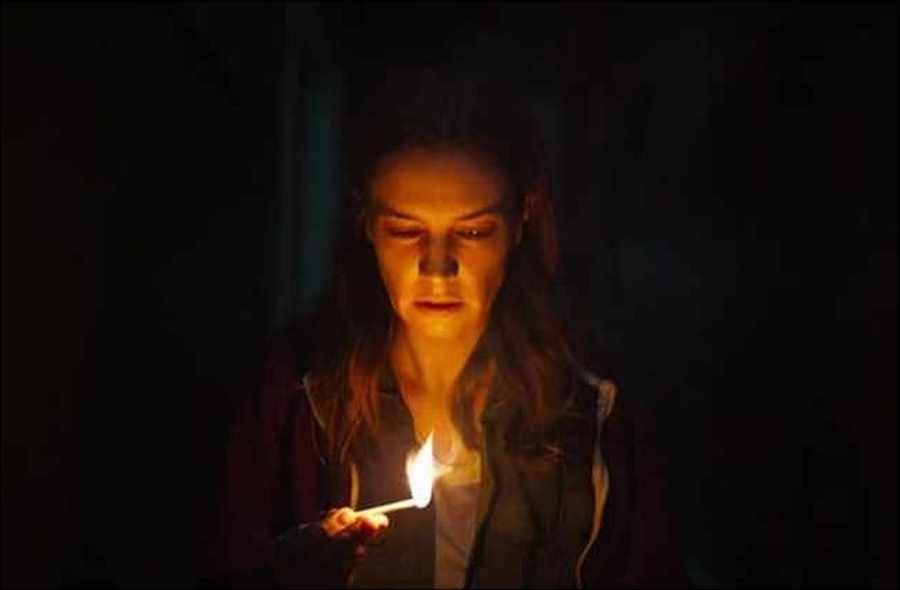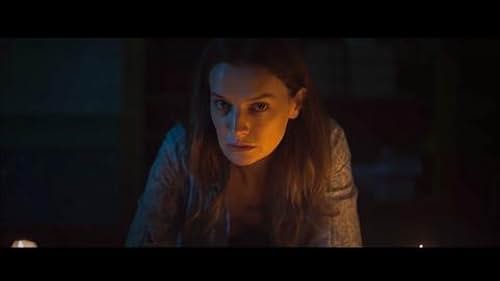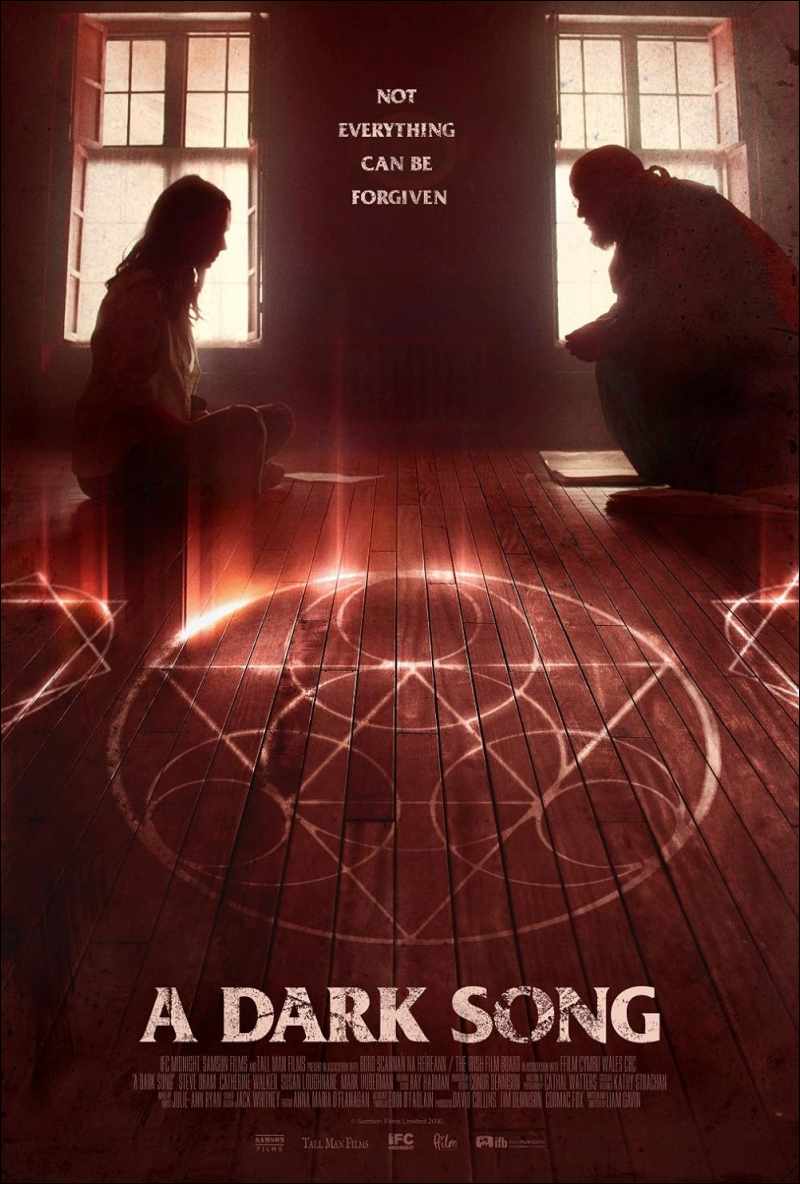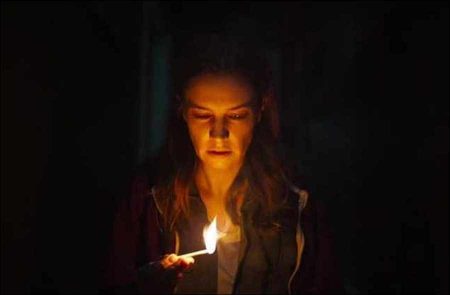
Taglines: Not everything can be forgiven.
A Dark Song movie storyline. Refusing to come to terms with the death of her boy three years ago, the young Catholic mother, Sophia Howard, is prepared to do whatever it takes, even if she has to subject herself to the onerous labour of performing a prolonged and elaborate Hermetic ritual.
As a last resort, the eager mother rents a quiet cottage in the remote North Wales Highlands, and persuades the Gnostic ceremonial mage, Joseph Solomon, to guide her through the intricate preparations. Determined to proceed regardless of the consequences, Sophia seals herself in the house along with Joseph, until the invocation that promises to unshackle the unseen realms, is done.
However, even though strange synchronicities begin to occur, the sophisticated and dangerous rite that provides conversation and knowledge to the invoker is still fruitless, forcing Joseph to question Sophia’s intentions. Is cryptic Sophia’s drive, indeed, pure? Will the otherworldly Dark Song lead to the ultimate truth?
A Dark Song is a 2016 Irish-British independent horror film, written and directed by Liam Gavin and starring Steve Oram and Catherine Walker. It was released to select theatres and digital streaming platforms on April 28, 2017. It is Gavin’s directorial debut. A Dark Song premiered 8 July 2016 at the Galway Film Fleadh in Ireland, and was shown at the 2016 Fantastic Fest, the 2016 BFI London Film Festival and the 2016 Boston Underground Film Festival.
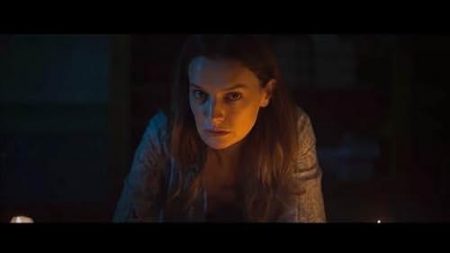
Film Review for A Dark Song
The upsurge in recent times of intelligent, low-budget horror productions has given us remarkable movies such as The Witch, Sator, and The Dark And The Wicked. And the occult horror movie A Dark Song, the first feature film by director/screenwriter Liam Gavin (The Haunting of Bly Manor), fits nicely in those ranks.
The movie starts off with its central character Sophia (Catherine Walker, The Curse Of Audrey Earnshaw, House Of Gucci) as she drives through the sloping countryside. She rents a secluded mansion in rural Wales that she needs for a year, paying the realtor in cash and thanking him for his discretion. Next, she picks up a rover-like man from the railway station named Joseph Solomon (Steve Oram, The Kindred, The Canal), who’s an occultist that she intends to hire and help her make contact with her deceased son.
After initially declining, Solomon ultimately agrees to take on the job of guiding Sophia, in hermetic seclusion, through a gruelling regimen of rites involving months of strict rituals and torturous deprivation without breaks or interruptions that, if done right, should ultimately give Sophia what she seeks and lead her to her epiphany. Something that will take both of them on a harrowing journey through the torments of self-examination, revenge, sacrifice, redemption and, ultimately, atonement – If they live to reach it.
The rituals, and the ordeals they impose on Sophia and Solomon, are the meat and muscles of Gavin’s movie, as much as the transformation they put themselves and each other through is its beating heart. The whole procedure is based off and derived from the Abramelin, a German grimoire from the late Middle Ages.
For his story in A Dark Song, Gavin was inspired by a documentary on the infamous British occultist Aleister Crowley (1875-1947) who performed – but never completed – the same rituals in Boleskine House, a sprawling hunting lodge on the shores of Loch Ness, Scotland.
On an interesting side note, Boleskine House would later, in the last century’s early seventies, also briefly be owned by Jimmy Page (Led Zeppelin’s guitarist). Now in ruins caused by two devastating fires not too long ago, it’s currently under renovation and reconstruction to bring it back into its former state. The mansion that serves as the setting for A Dark Song is equally isolated but looks more like a Gothic set piece from a classic Hammer movie instead of the sprawling, white-walled, one-storied estate of Boleskine House.
In the movie’s first act, Gavin introduces Sophia as an aloof and bitterly grieving woman, somewhere in her mid-thirties, who has turned to the occult in search of reparation for the injustice she feels life has dealt her by taking her child from her. She comes prepared and armed to the teeth, having done her homework and remaining firmly grounded. She’s rational and determined in her approach, cold and focused, far away from any floatiness or hysteria, also towards Solomon. Nonetheless, Catherine Walker manages to imbue Sophia with enough humanity to make her relatable throughout the movie, supported by Gavin’s well-crafted script by keeping her motives, choices and actions fully logical and understandable.
She forms an unlikely alliance with Solomon, and Steve Oram is totally captivating in his rendition of him. Solomon demands full compliance from Sophia once the rituals have commenced and he’s crass, obnoxious, capricious and uncouth. He smokes incessantly, has alcohol-abuse problems and won’t even hesitate to abuse his sway over Sophia to get what he wants from the whole procedure. But he also has the skills, knowledge and determination to see the complex, tormenting and intricate rites through with her. And on and up to that level, but no further than that, Sophia trusts him.
Once the second act kicks in around the 20-minutes mark, the movie essentially becomes a chamber two-piece, almost entirely taking place inside the mansion that Sophia has rented, as she and Solomon toil through the rituals. It is here where A Dark Song truly shines, with Sophia and Solomon forming a bond that is defined by its purpose, putting one another through hardships and horrors, based on tenuous mutual trust but at times developing a measure of camaraderie while (thankfully) remaining averse to any budding romance or even true friendship.
But when shit finally starts to fly, around halfway into this 100-minutes long movie, the fan is never far away, waiting for it to hit it. And the tone shifts along with it, from moody and tempered to dark and ominous. The bond between Sophia and Solomon deteriorates and devolves from uneasy master/student into peers who’ve worked themselves and each other into a volatile and possibly deadly corner with no way out, and whose mutual trust is all but gone, but who’s condemned to one another regardless with no other choice but to see it all through, just with their bare lives if nothing else.
Gavin deliberately keeps it ambiguous if, and to what extent, everything that occurs in the second half of his movie is really happening to Sophia and Solomon, or is merely the hallucinatory consequence of their minds breaking down, brought on by the rituals or by deprivation, or both. Ultimately, the resolution Gavin provides is still ambiguous but it works perfectly fine for me regardless: consequences are real, but reality is an inherently subjective principle.
A Dark Song seems to revel in the contraposition of its lead characters, playing Sophia against any situational stereotype and putting Solomon even in complete opposition to the real-life image that inspired his persona. Gavin keeps his movie measuredly paced, and dialogue and exposition to a necessary minimum. Solomon takes us through the ritual proceedings in his instructions to Sophia, but Gavin lets his visuals, and the impressive acting performances of his two leads, do the heavy lifting and convey most of his story.
This all might make it seem like the movie is an exercise of sorts in minimalist genre cinema, with most of it occupied by just two people in empty rooms chalking esoteric glyphs on a wooden floor and surrounded by nothing but the bare necessities and supplies. But A Dark Song is, aside from astounding performances by its leads, peppered throughout with enough tension, sense of oppression and desolation, and action, to keep the proceedings thoroughly interesting, engaging and engrossing.
The camerawork is carefully capturing rather than emphatically empathic, perfectly aligning the characters’ approach to the matters at hand as the story of Sophia’s plight unfolds. Sound design is equally deliberate and befitting the visuals, abrasively and pervasively themed by a small string ensemble.
If I had to dole out one criticism, it would be relayed to the final climax of the movie where, while perfectly in tune on a narrative level, I feel like Gavin goes a bit overboard with his visuals. In one of his interviews, he divulged his initial idea on how he wanted to visualize it, and I can’t help feeling that it would have been better had he gone along with that. As it is, it feels forced and overly celestial to me. It still kind of works, but it could have worked better, at least for me, with a bit more restraint.
To horror hounds, A Dark Song may not be for everyone. It’s mostly bloodless, aside from the particularly gruesome finale that’s all the more impactful by the movie’s measured buildup. It’s anything but fast-paced with its lengthy runtime, and completely devoid of the jolt-a-minute jump scares that pervades many a 21st-century horror movie. It contains some, but not many, special effects, most of which are practical and, as such, nicely done. It also has a bit of unconvincing and occasionally clunky CGI, but this is not what A Dark Song is really about, and it doesn’t hurt it too much.
In conclusion, A Dark Song is an excellent, oppressive indie movie with authentic touches to it. In a few words: it’s an uncanny and educational mind job. You won’t be sure what really happened and what didn’t, and it will still linger in your mind long after the credits roll.
A Dark Song (2016)
Directed by: Liam Gavin
Starring: Steve Oram, Catherine Walker, Mark Huberman, Susan Loughnane, Nathan Vos, Sheila Moloney, Martina Nunvarova, Breffni O’Connor, Ruby Kearns, John Carton, Aaron O’Neill
Screenplay by: Liam Gavin
Production Design by: Conor Dennison
Cinematography by: Cathal Watters
Film Editing by: Anna Maria O’Flanagan
Costume Design by: Kathy Strachan
Art Direction by: Anaïs Chareyre-Méjan
Music by: Ray Harman
MPAA Rating: None.
Distributed by: IFC Midnight
Release Date: April 28, 2016
Views: 36
